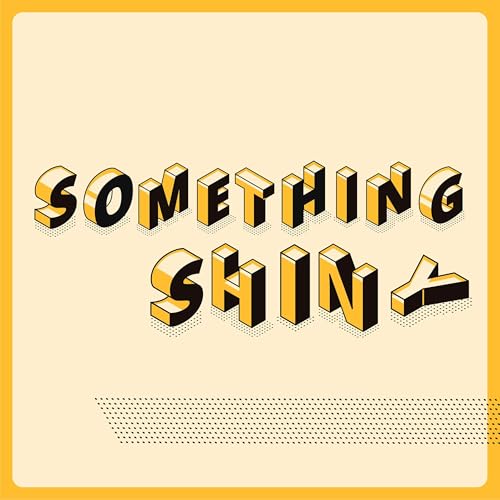-
サマリー
あらすじ・解説
Break free from the overwhelm, shame, and constant battle with your ADHD. Order the Something Shiny ADHD Toolkit Series - available now until January 2nd, 2025! This week we're revisiting what happens when you show up at a holiday meal and immediately realize with a sinking feeling- "Not again…I can't eat anything here…" From honoring the cook's efforts while not betraying your own needs, to recognizing the joys of chewing on pens and ice, join David and Isabelle as we embrace our sensory sensitivities and make our own neurodivergent-friendly and inclusive traditions. Check out our Holiday Survival Guide! Part of a holiday prep series designed to help take some pressure off the holiday season.——David and Isabelle stare down the fast moving train of holidays and expectations that is barreling toward us right now. As we approach Thanksgiving we have a bunch of "shoulds" coming at us--we should be like everyone else and even though we have sensory issues with cars, and sounds, and people, and all that stuff. Everything from sitting still from being held hostage on a plane or in the car, or being stuck in a service or sit at a table, or eating - the sound, the food, the overstimulation, while simultaneously coupled with frustration and your routine being destroyed, and all of this at the same time. This explains why Isabelle has a lurching sense of dread approaching this time of year. The holiday dread is real. David and Isabelle have covered other aspects of holidays, like speaking with family, and the glories and pains of holiday travel, and here they are focusing on food and sensory sensitivities. Isabelle remembers how growing up she was known as a picky eater but actually there were a lot of sensory sensitivities going on. She had memories of celebrating “wigilia” (Polish Christmas Eve celebration) and sitting at a much larger table, with much more eyes on her, and as someone who only ate pretty much chicken and white rice and potatoes, she was facing down a traditional non-meat meal of 12 mostly fish-based dishes (such as pickled herring). You fast before this evening meal, and then you commence the eating. She would be lightheaded and nauseous because she’d be so hungry and would fill up on dinner rolls with butter, everyone is judging and commenting, then she lives on the high of opening presents, and then they’d go to midnight mass at midnight, and then they’d light candles and means the oxygen is rapidly leaving the area in an enclosed place and so she’d either pass out and throw up. Everyone can look back in time and find the holiday memories of “we can’t believe we did that on purpose.” We don’t make time any other time of year to have these rituals, and see each other, and it's really about connections, yet we get caught up in following these rules that don’t always work. Isabelle thinks about how for years she carried the shame around this being her fault, she’s the picky eater that would end up passing out or throwing up, but then thinks about how easy it would’ve been to provide some kind of option for her. That there are traditions and ways of keeping the meaning behind the traditions, but also making even small accommodations that can make all the difference to us. How we can always make new traditions. There’s a really hard part with food: there are people that work really hard for hours in the kitchen and they want you to try and see what you like about it and not like about it—how can we try certain things that work for us, and how can we bring our own food—like here’s my tub of Mac and cheese, there has to be a middle path. The way to be a gracious guest and host, and how as neurodivergent folks we can prefer to host because it gives us structure, she can stay on her feet, it helps her mask less. What is this about ADHD and food sensitivities? There’s a lot around taste aversion, what happens when we associate a food item with a thought in our head—like “eww, this tastes like sand” and we don’t eat sand…or boogers. To make the eating experience a lot more about the flavors they’re experiencing rather than the thought in the brain. Is it salty? Sweet? Savory? Textures? David is a texture person, there is a fine line between “this is edible” and “this makes me gag”—like bananas, one day to the next changes. Isabelle and David firmly agree on bananas being this type of thing, and Isabelle does not do overripe bananas, you make it a cooking liquid and you put it in banana bread. David also likes drinkable yogurt and he doesn’t mind it because he’s drinking it. If he’s moving his mouth hole up and down there needs to be something there to fight my mouth.” And crunching is stimulating and stress reducing. Whether we’re chewing ice or almost-cutting-the-top-of-your-mouth bread crust. Is it the act of chewing that’s stress reducing, or something crunchy is stress reducing? Isabelle notices chewy things, like gum, ...


